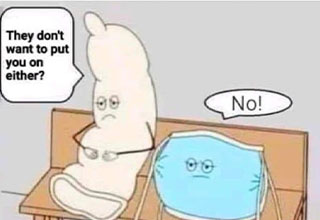The Chosen People of God within the Community
Letemdangle
Published
11/29/2010
The relationship between the global Jewish community and the global Christian community is unfolding and ever changing. Both communities claim true knowledge of God as many other religions but the situation is complicated by the belief in the same God and that Christianity has emerged from Judaism both structurally and historically as the Christian Messiah and first Christians were Jewish.
The question I would seek to answer would be: How can the apparent contradictory beliefs of Christians and Jews allow for the acceptance of the theological titles of The People of God and the The Chosen People of God on both sides?
The second Vatican council made special theological considerations for the Jews and for the understanding of the gifts that were given to the Jews. The Jewish people have tried to understand their own place within the rapidly growing Christian community just as Christians have questioned how to understand their own beliefs that rise from the Jewish world.
Bibliography
1. "Dogmatic Constitution on the Church - Lumen Gentium." Vatican: the Holy See. Web. 18 Oct. 2010. .
2. Kessler, Edward. An Introduction to Jewish-Christian Relations. Cambridge: Cambridge UP, 2010. Print.
The New People of God and the Old Covenant
The Churches Position on its Jewish Brethren in the Light of Vatican
November 23, 2010
The relationship between the Church and the Jewish community is as old as the advent of Christianity. Though the roots of both faiths come from the same beginning, historical social and political problems have caused tension ever since the life of Jesus. Perpetuated understanding and misconceptions of the people from both sides has hindered, until very recently, the progress of living more completely in love with our brothers and sisters. We share the same Heavenly Father and must recognize this fact if we are ever to walk together in the light of His love.
The Second Vatican Council made many special considerations for their writings on the Jewish people and the way members of the Church should see them. The Document: Declaration on the Jewish People was passed in the final session of Vatican II with 96% majority (7-8, Bea). The near unanimous voting of the Council demonstrates the willingness of the Global Church to implement this theological and relational document into practice all over the world and how ready Catholics are to remember the bond which spiritually ties the people of the new covenant to the offspring of Abraham(9, Bea).
In the document the Abrahamic connection is clearly seen. Shared scriptures reveal to us that Abraham is the first to share in an everlasting covenant. In Genesis 17:2, 4-7 is is written, I will make a covenant between me and you and I will multiply you exceedingly...you shall be the father of a multitude of nations...I will establish my covenant between me and you and your descendants after you throughout their generations, for an everlasting covenant. In the New
Testament genealogical writing show us that Jesus is a direct descendant of Abraham. This is important to remember because it would be incorrect to say that Jesus invalidates the original covenant rather he fulfills it. But how can this be justified? In Galatians 3:29 it is written, If you are Christs then you are Abrahams offspring, heirs according to the promise.
The theological implications of this scripture shows that when you are united with Jesus you form one mystical body with Christ and this allows all the people of faith to become one with Jesus and share in the promises that were made to Abraham (56, Bea). By establishing himself as the new head of the human race, Jesus has united in himself both Israel and the non-Jewish peoples(58, Bea).
The Gift of the Covenant is a result of Gods love and were on His initiative (62, Bea). This is relevant because it makes any such gift beyond human understanding and requires the infinite grace of God for us to experience and take part in it. The Church would not ignore the validity of the Gift of the Covenant because to deny [this] would deny the foundations of Christianity (120, Bea). Because Jesus was a righteous Jewish man and upheld the tenants of the Torah he fully receives this wondrous gift and Christians receive it too by living their lives within Jesus. The Church represents this mystical body of Jesus and by participation in faith the infinite grace of God can be bestowed upon the imperfect sinners that make up the Church.
It is important to note that since the Gift of the Covenant was conceived and initiated by God alone the Declaration on the Jewish People does not speak of the Church receiving this or that from the Jewish people but rather through them from God (63, Bea). This distinction is made because God is always seen as the source and to attribute the wonderful gifts of the Jews to only humans would belittle the true magnitude of these gifts.
It is clear that the Church and the Jewish People have a common root but the divergences begin with the crucifixion. Christians have put the blame on the Jews for deicide (the murdering of God). And we can see hostility towards the Jews by the blinded Christians who might see themselves as the avengers of Christ (67, Bea). When Christians allow themselves to only be concerned with the actions of the Jews who persecuted Jesus and the events that resulted in the Crucifixion, hatred and aggression can cause them to forget the message and teachings of forgiveness from the One they are trying to avenge (102-103, Bea).
It is unjust to blame all of the members of the Jewish faith and to claim that they are no longer the chosen people or that God has forsaken them for their actions. The Declaration on the Jews does not convict the Jews of deicide because deicide can only be properly imputed to those who have committed the crime in full and clear knowledge of the dual nature of Christ (69, Bea). In Acts 3:17 Peter says, Brethren, I know you acted in ignorance, as did your rulers. Christian scripture then deems the charge of deicide too harsh a judgment for the Jews. Also it is important to understand which specific Jews are blamed. At no time does St. Paul refer to the Jews as the collective which would include himself rather it is a reference to the Sanhedrin (the Jewish Oligarchy which was not elected nor truly represented the Jewish people) or the Jews in Jerusalem (74, Bea). Thus the implications of the Jewish people in entirety, a guilt based solely on membership to the Chosen People, being blamed was never envisaged (77, Bea).
The acts of people who deem themselves avengers of Christ are officially condemned by the Church. Hatred, persecution and manifestations of antisemitism directed at the Jews at anytime and by anyone are condemned because it is counter to the spiritual love of the Gospel (116, Bea).
Another point of opposition is the seeming contradictions in the Old and New Testament. While many scriptures do seem to directly oppose each other and it would also seem that one would have to choose between right an wrong in one or the other, we must remember that the Old Testament was written for the mentality of the people at the time. The scriptures represents the conditions of the first story tellers and readers of the Jewish communities in a time before the influence of Christ (121-122, Bea). Morality takes time to develop within societies and after hundreds of years of politics and prophets a time was entered in which Jesus could be seen and accepted as the Christ.
The Lords prayer that Jesus gave us titles God as The Father. We can not truly call God our father if we deny our brother, what ever form he takes. Jews are among the closest of our brothers and sisters because of the union of person and Christ and Christs symbolic relation to both the Jews and non-Jews. Humans are so linked in love that 1 John 4:8 says, He who does not love does not know God. Vatican II reestablishes the link that exists between all believers in faith. We are all people of God
Bibliography:
1.Bea, Augustin. The Church and the Jewish People; a Commentary on the Second Vatican Council's Declaration on the Relation of the Church to Non-Christian Religions.
New York: Harper & Row, 1966. Print.






2 Comments